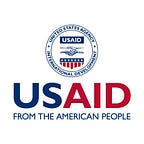Facing Bangladesh Monsoon Season
USAID Helps Rohingya Refugees Respond to Rains
The monsoon season is underway in Cox’s Bazar, in the southeastern corner of Bangladesh. Every year, from June to October, monsoon rains unleash floods across Bangladesh, including last year when severe flooding affected more than eight million people.
This year the monsoon rains pose an especially dire risk in Cox’s Bazar District — not only to 336,000 Bangladeshis who need humanitarian assistance — but also to nearly one million Rohingya refugees. More than 700,000 of these refugees arrived less than a year ago, fleeing violence in Burma. Many arrived traumatized, malnourished and with few possessions or resources. They settled on hilly terrain, which is now covered by makeshift shelters that could be in danger of being swept away by floods and landslides.
Cox’s Bazar is a remote coastal district with little in the way of roads or infrastructure. Today, its once-forested hillsides are laid bare, or covered with overcrowded refugee camps. Refugees living in the Kutupalong settlement, now the world’s largest refugee camp, have used every available tree or root to build shelter or as cooking fuel, leaving the hillsides vulnerable to landslides. The UN estimates more than 215,000 refugees live in areas at extreme risk of landslides and floods.
The monsoon rains pose multiple challenges. In addition to the risk of landslides and flooding washing away homes and service centers, and causing injuries, rains are making it difficult for people to leave their homes to collect food and water. Humanitarian workers face a similar challenge as they try to reach the most vulnerable. As wells and latrines flood, a lack of clean water and poor sanitation conditions increase the risk of cholera and other diseases that pose serious health risks, especially for children and pregnant or nursing women.
With USAID support, the UN World Food Program (WFP) and other partners have prepared the camps for monsoon season as much as possible under time and space constraints. WFP is the world’s lead agency for providing life-saving food assistance to refugees, and in Cox’s Bazar, also the lead for humanitarian logistics — essential to moving large quantities of food and non-food supplies. WFP’s logistics expertise is proving instrumental in helping to withstand the monsoon season.
As a first step, WFP set up 20 weather-proof storage units so that humanitarian organizations in Cox’s Bazar can pre-position supplies, including fortified foods, nutrition products and health supplies, all across the refugee settlements.
Meanwhile, outside the Kutupalong settlement, WFP and other logistics partners established a new logistics hub. Thanks to USAID support, the hub has mobile units to host engineers, nutritionists and other technical teams for rapid response in case of emergencies. These “mobile” services are key to ensuring humanitarian actors can deliver timely assistance and lifesaving supplies throughout the monsoon season.
WFP also conducts disaster risk reduction activities, for example, food-for-work programs that engage refugees to help build pedestrian bridges, improve drainage, level ground, stabilize slopes, widen roads and reinforce key structures such as shops and food distribution sites in settlements. Refugees doing this work received cash assistance to purchase nutritious foods.
Other work has included making structures more weather-resistant and relocating Rohingya families who lived in especially vulnerable, flood-prone areas to more suitable land.
The risks that monsoon season poses are real and cannot be completely eliminated. Logistics and disaster risk reduction activities lessen the risks and allow for coordinated response in the case of disaster. USAID, WFP and other logistics partners have worked together with the Government of Bangladesh to lessen these risks.
USAID’s Office of Food for Peace continues to respond to the Rohingya humanitarian crisis. Learn more at www.usaid.gov/food-assistance.
